In this interview with Gary Thomas of Voice of America, CIADirector Leon Panetta says President Hamid Karzai will in alllikelihood still emerge as the winner of the presidentialcontest in Afghanistan, even after contested votes are thrown out.Panetta also says there aredifferences among Iran’s leaders about whether to actually build anuclear bomb, and he talks about the CIA’s reaction to the U.S.attorney general’s investigation into interrogation techniques.
Global Archive
Free Newsletter
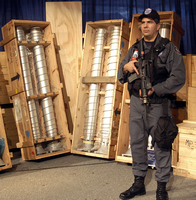
While transnational illicit flows of people, goods and technology are not a new phenomenon, it has been widely recognized that the volume of these flows has increased dramatically in the globalizing era that has followed the end of the Cold War. This increase has largely been a result of the technical innovations associated with globalization, combined with the popularization of “free trade” ideals. Simply put, the sheer volume of international trade has meant that even states of the developed world increasingly cannot control their borders. What effect has this increase in illicit flows had on states and their power in […]

Last week, the United Nations Conference on Trade and Development (UNCTAD) issued a report calling for sweeping changes in the international financial and monetary order. Arguing for a reduced role for the dollar, the report advocated for a global reserve bank with the power to issue its own currency, to monitor its members’ national exchange rates, and to prop up or push down their currencies. In other words, UNCTAD is making the case for a global central bank. The U.N. is not alone in calling for such a move. Since the eruption of the global financial crisis last fall and […]
Naval rivalries have been a recurrent theme of recent Asia coverage, with China, India and the U.S. maneuvering for position and influence in the Indian Ocean and South China Sea. But everyone, it seems, has overlooked another global force, quietly engaged in its own naval buildup (via Barry Ritholz).
Reading about Margaret Thatcher conveying security assurances to Mikhail Gorbachev two months before the Berlin Wall fell, I couldn’t help but think that the Cold War, from start to finish, was a mindboggling achievement of Western statesmanship. On the fly and with the survival of humankind hanging in the balance, a generation of political leadership crafted a stable security architecture largely from scratch. Thatcher and George H.W. Bush’s instinctive management of the Soviet Union’s death throes in what Andrew Sullivan calls “brutally realist fashion” was the culmination of that remarkable effort. But it’s important to remember, too, that there were […]
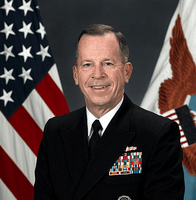
As adaptive and creative as the United States claims to be, one would think that, eight years after 9/11, the foreign policy establishment would have come up with a workable way to communicate its strategic message to the rest of the world. It hasn’t. Call it the $10 billion bungle, because that’s a reliable estimate of how much the U.S. has spent since 9/11 on the effort. Bringing the dilemma to the fore is a scathing indictment issued by Chairman of the Joint Chiefs of Staff Adm. Michael Mullen in the latest issue of Joint Forces Quarterly. Mullen’s broadside goes […]
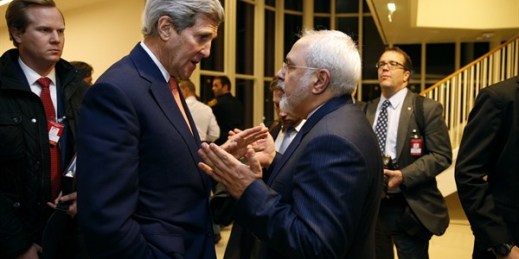
The problem with withholding diplomatic relations to punish countries and change their behavior is that it usually doesn't work. In the meantime, the absence of relations robs America of a key diplomatic skill and the ability to intervene in a crisis. In recent years, many American officials have regarded withholding diplomatic relations as a way to punish countries for actions ranging from human rights abuses, to failure to abide by international law, to specific treaty violations and acts of war. But state-to-state relations among nations provide an essential framework for the conduct of foreign relations. Having no relations, and the […]
The systematic assault and rape of children in war zones has emerged as a central characteristic of conflict across the globe, and governments must do more to protect minors and punish perpetrators, the United Nations says in a new report (.pdf). The nature of conflict has changed in the last decade, the report charges, creating “new and unprecedented threats to children. In many of the new wars, especially in Asia and Africa, conflict remains internal and takes place in peripheral areas where access is difficult. In particular, children and other vulnerable segments of the civilian population are increasingly becoming the […]
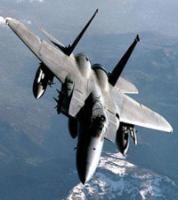
A study by the Congressional Research Service (CRS) found that U.S. arms sales surged last year, despite the worst global economic downturn in decades. (UPDATE: WPR subscribers can download the CRS report here.) In 2008, U.S. arms dealers signed new weapons contracts worth approximately $37.8 billion, a considerable increase from previous years. The surge was remarkable given that the total volume of new arms orders in 2008, $55.2 billion, was billions of dollars below the comparable figures for 2007 and 2006. The United States also fortified its position as the leading arms-exporting country. Last year, the volume of global defense […]

In what some experts are calling the third great wave of outsourcing — after manufacturing and services — cash-rich Arab and Asian governments are buying up arable farmland (read: water rights) all over the developing world. Naturally, the worst-case artists in my field of national security see only one possible outcome: a long, steady decline into a chaotic, Mad Max-like dystopia, characterized by that favorite of the alarmist set — resource wars. Get used to such predictions, as today’s still-stunning production inefficiencies are mechanically projected deep into the future, despite all indications of a biological revolution looming just over the […]
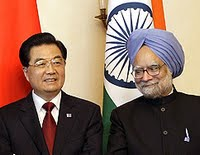
NEW DELHI — Even as they resist persistent pressure from Western nations to rein in their carbon emissions, India and China are warming up to each other on the contentious climate change issue. The rare display of solidarity is all the more noteworthy given the two Asian giants’ generally tenuous relationship, as well as previous fractiousness regarding which one should do more to combat global warming. However, at the climax of a four-day visit to China last week to discuss a wide range of bilateral environmental issues, India’s Minister of State for Environment and Forests Jairam Ramesh felt upbeat enough […]
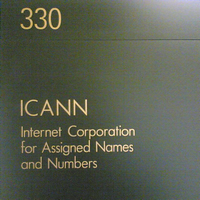
The Internet made a major contribution to global society by disrupting the regulation of media content by nation-states. It took the libertarian principle of “absence of prior restraint” and globalized it: No one had to ask for permission, or be licensed, to make their ideas and publications globally accessible. This open access, sometimes praised as “network neutrality” or the “end to end principle,” took states by surprise. The explosion of ideas, services and expression associated with the Internet’s growth in the mid-1990s happened because states weren’t prepared for it and because states weren’t in charge. Yet even if we accept […]

In general, practitioners of international politics, and those charged with developing and executing governments’ foreign policies, have certain expectations regarding the behavior of the states comprising the international system. Indeed, these expectations reflect both rules commonly observed by state governments — if all too often in the breach — as well as a common understanding of the prerogatives that obtain to governments, as opposed to individuals and others not disposed of governmental authority. But do these expectations still hold and, if so, are they realistic today? Is modern information technology, and the global information infrastructure it enables, changing what we […]
